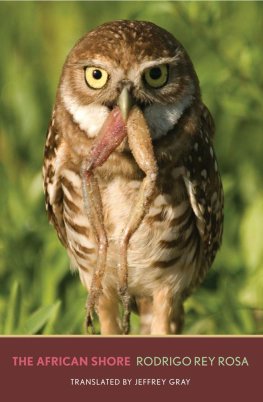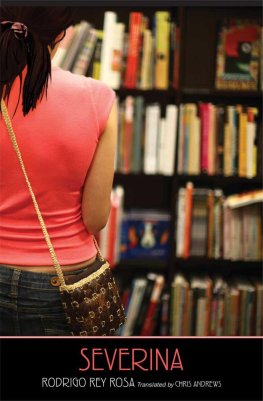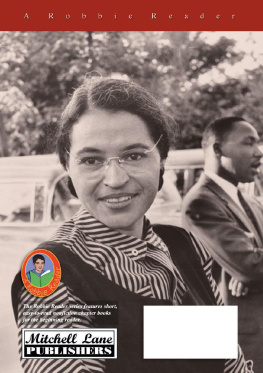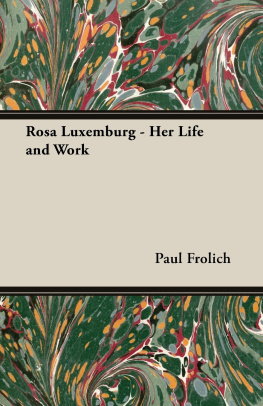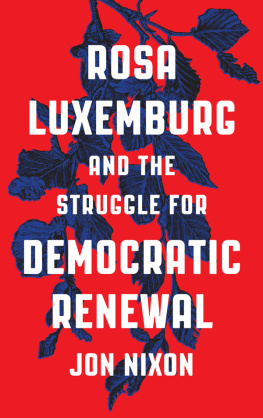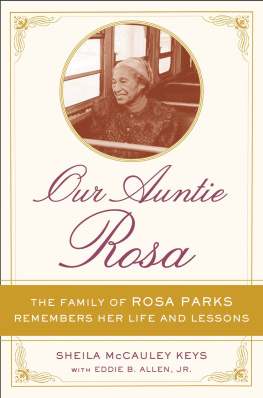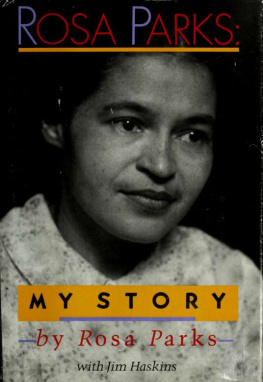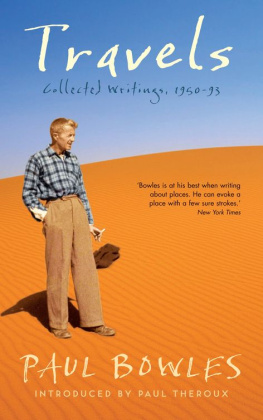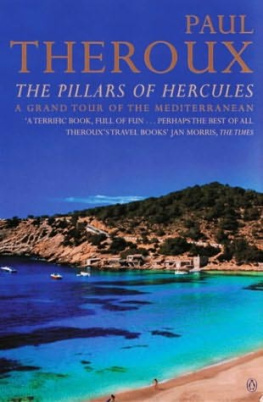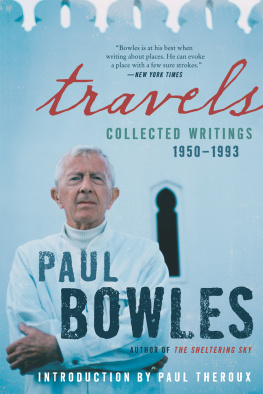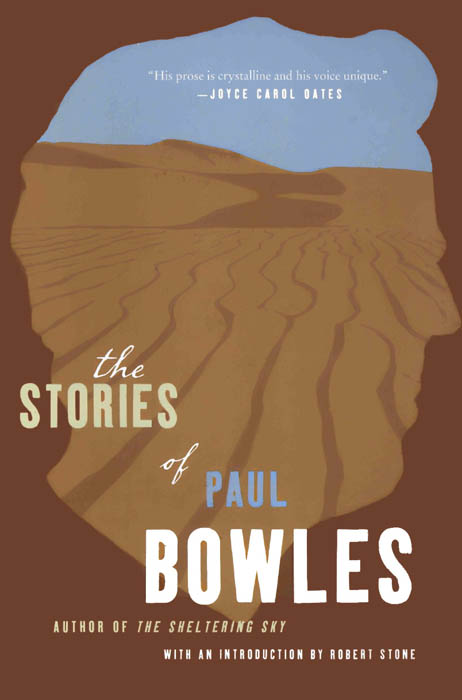Rodrigo Rey Rosa
The African Shore
It was still dark when Hamsa got up, and the wind out of the east was whistling over the cliff face, rattling the branches and leaves like a thousand maracas. He could hear the waves crashing violently on the rocks at the foot of the cliff. He finished his ablutions, then knelt to pray on the skin of a sheep slaughtered at the last Aid el Kebir. He brewed a glass of tea on his small brazier, broke open a dark round loaf of bread, and dunked a piece of it in a dish of olive oil. In Gods name, he said, and began to eat.
It was just getting light when he set out toward the slopes of Shloka, where he had last seen the stray lamb just before returning to the sheep cote the day before. He followed the road along the cliff, the frogs still croaking around him, and passed below a big abandoned house that had once belonged to the Perdicaris family. Instead of following the path through the pine woods, he chose a trail through the thickets where he had found other strays in the past. Raising his arms from time to time against the thorns, he moved inward through a dim tunnel of vegetation. It was dangerous here, he knew he could easily run into a wild boar but he wasnt afraid. He knew no djinn would come here: the djinn hated thorns (which was why Muslims let thorns grow on their family graves). The thicket was damp with dew, and inside it stank of resin, rosemary, and porcupine droppings.
Beyond the wide swath of bushes lay the shore with its big boulders and punishing waves over which a cold wind buffeted the seagulls back and forth. Hamsa cried out twice for the lamb, looking carefully down the slope as the first rays of daylight gilded the sides of the rocks. Nothing. He climbed up to the little grove that concealed the ruins of the old Spanish boating club, and looked into what had once been the swimming pool, now ruined and overgrown with grass. Nothing. Finally, he climbed back down to the steep rocks where the sea was pounding.
He was standing next to a rock wall when he saw the lamb a few meters below him, cornered between two boulders, splashed intermittently by the waves; it was trembling. How had it gotten there? Maybe some of the soldiers dogs had chased it they had their barracks near the boating club. He began to ease himself down, sliding dangerously along the wall, his body pressed to the sandy rock. He was seized with an irrepressible shiver, the way one is when scaling the trunk of a very tall tree. His foot searched blindly for support in a chink of the rock but couldnt find one. His sweaty hands locked for a moment onto a sharp outcropping. Suddenly, a turtledove flew close behind him. Hamsa turned his head with a shudder, and the rock came off in his hand with a dull crack. He landed feet first on the rocks below, a stab of pain in his heel. He looked around him.
Yalatif!
His fall had sent the lamb tumbling into the sea.
Without taking his eyes off the animal, its little white head bobbing in the waves, Hamsa quickly stripped off his gandura, his Nikes, and his drawers. Calling out Gods name, he jumped into the water.
Hamsa had been smoking kif since he was a child. His grandmother Ftima tried to get him to quit, going so far as to sprinkle drops of urine on the kif, but it was no use. Hamid, his father, now dead, laughed the day Ftima told him how she had surprised Hamsa stealing kif from his sheep-bladder pouch as he slept.
A chip off the old block, he said.
Hamsa smoked kif every day when he herded for Si Mohammed Mrabati, who had hundreds of sheep, and who liked the idea that they pastured on the slopes of Agla, which lay between Tangier and Cape Spartel. Sitting on a flat rock, watching the sea in the mouth of the strait, Hamsa would play his lyre to relax after a pipe. Sometimes he would go down as far as the Sinduq, a giant rock shaped like a coffer half-sunk in the sea, to see the creamy blue water rise and fall among the honey- and cinnamon-colored boulders. But he usually couldnt smoke there. The east wind or the north wind would pick the kif right up and scatter it over the water, where it might stir up the dreadful beings who lived under the waves and who could bring bad luck. You could get sick and have impure thoughts. Like when Hamsa had to pass a night in the quba, the tomb of Sidi Mesmudi, which is in Monte Viejo, because he had caught typhus. The next morning he saw a woman give a black chicken to an old man with a yellow turban. He watched the old man draw a knife from under his shirt, call upon Allah, and, crouching next to the saints fountain, cut the animals throat. Or like when he had sullied himself with a sheep, hiding behind a black canvas lean-to, wishing all the while that the sheep would turn into a woman but thankful that God had at least ordered things in such a way that the sheep didnt get pregnant. Or like when he plunged his penis into a pile of donkey dung to make it grow bigger.
He opened his eyes. The sky was liquid blue, and the cold, though not as intense as he had expected, was countless needles and bubbles stuck to his skin. He spit salt water and blinked, looking for the lamb. Two strokes and he reached it. It had a fibrous little body, incredibly heavy for its size. Hamsas head sank under a wave, and he felt a sharp sting of salt in his nostrils and a sourness in his throat, but he managed to get the animal to float. He paddled hard to keep it up above the rough surface of the water, as it churned back and forth between the boulders. With his free arm he struggled to approach the shore without being thrown against the rocks. He clutched at the foot of the large rock he had leapt from and rested a moment in a crevice, precariously shielded from the violence of the waves. He slung the lamb over his shoulders and crept up the rock as far as the landing where he had stripped off his clothes. The wind, coming in gusts from above, whistled and made the chill bone-deep. The lamb trembled uncontrollably, like an electric toy, in the little puddle of water draining from its wool; a ray of sunlight grazed its back as Hamsa stood at its side, taking the same ray full on his face.
Hamdul-lh, he said, but at this moment the wind lifted up his pile of clothes, which lay one step away from him on the rock. They traced a downward arc into the sea.
Shaitn!
Hamsa leapt into the water again.
On the way back to the hut, the lamb over his shoulders, Hamsa thought of his uncle Jalid, who was living in Spain. The last time his uncle had come to visit, he had given him the (imitation) Nikes he now wore constantly. They were the envy of Ismail, his playmate. Ismail was going to envy him all his life, because, as his uncle had said, Hamsa would be rich and would own lands and livestock. His father had died poor, and when Hamsa grew up, he would have to support his grandparents, Ftima and Artifo, who worked as servants in a house owned by a Christian woman in Monte Viejo.
You want to have money, dont you? his uncle said.
Hamsa reflected.
Yes, he said.
And his uncle explained how, working for him, he would begin to earn money. It was an easy job, but only Hamsa could do it, because he knew that part of the coast better than anyone besides his uncle, who from childhood had been a shepherd like Hamsa, and, later, a fisherman. (It was a dangerous coast, lined with reefs and rocks, and full of steep cliffs and slopes covered with all sorts of vegetation, soaked incessantly by the sea wind.)
Before going back to Spain, his uncle visited the hut where Hamsa lived. Little Ismail was there, helping Hamsa mark the sheep they would sell that Sunday in the market.
Bghit nhadar mak,

